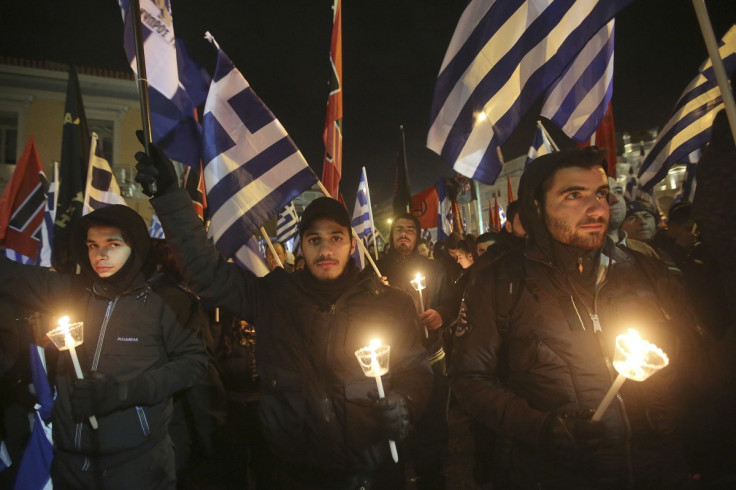Greek debt crisis: Will Europe austerity deal push young Greeks towards neo-Nazi Golden Dawn?

Greece's controversial former finance minister Yanis Varoufakis has blamed European powers for forcing the country to accept a deal that will only serve to benefit the neo-Nazi party Golden Dawn, which won 7% of the vote in Greek elections in 2012.
He said since Syriza accepted the deal proposed by the EU and therefore is no longer an anti-austerity party, far-right party Golden Dawn – many of the leaders of which are currently in jail –will "inherit the mantle of the anti-austerity drive".
"If our party Syriza [...] cultivated so much hope in Greece – to the extent that we managed to score 61.5% in the recent referendum – if we betray this hope [...] then I cannot see any other possible outcome than the further strengthening of Golden Dawn," Varoufakis said.
Golden Dawn won its first seat in municipal elections in 2010 before winning 21 seats in the national parliament in 2012 following a campaign that targeted immigrants and opposition to austerity measures being demanded by Greece's European creditors.
Golden Dawn is feeding into a wider suspicion of foreign powers and a hatred of mainstream parties
In 2013, several Golden Dawn MPs and members were arrested following the murder of an anti-fascist musician and charged with forming a criminal organisation. The group's leader, Nikolaos Michaloliakos, is currently under house arrest pending trial.
He famously denied the Holocaust in an interview following Golden Dawn's electoral success in 2012, branding the existence of gas chambers "a lie". The party is known for its far-right insignia and attacks on immigrants in Athens.
Haridimos Tsoukas, an analyst and professor at Warwick Business School and the co-author of From Stagnation To Forced Adjustment: Reforms In Greece, 1974-2010, said Syriza's acceptance of the austerity deal was likely to bolster the far right and far left.
On the right, many of Greece's young people do not remember the military dictatorship that ruled the country until 1974 and fewer still the atrocities committed by the Nazis during the Second World War. At the same time, Golden Dawn's anti-European, anti-German and anti-austerity rhetoric feeds into a wider anger against mainstream politics in general among young Greeks.
"There are of course bad memories, but these don't mean anything to those born after 1974 – for them, dictatorship is something of the distant past. [Golden Dawn] is feeding into a wider suspicion of foreign powers and a hatred of mainstream parties," he said. "I would not underestimate their following."
The acceptance of the deal by Syriza is also thought to benefit the far left, which originally coalesced around the party but will now likely abandon it in favour of total opposition to austerity. At the same time, Tsoukas pointed out that Syriza retains its influence over the trade unions and so widespread protest and unrest on a scale seen previously is unlikely.
© Copyright IBTimes 2025. All rights reserved.






















